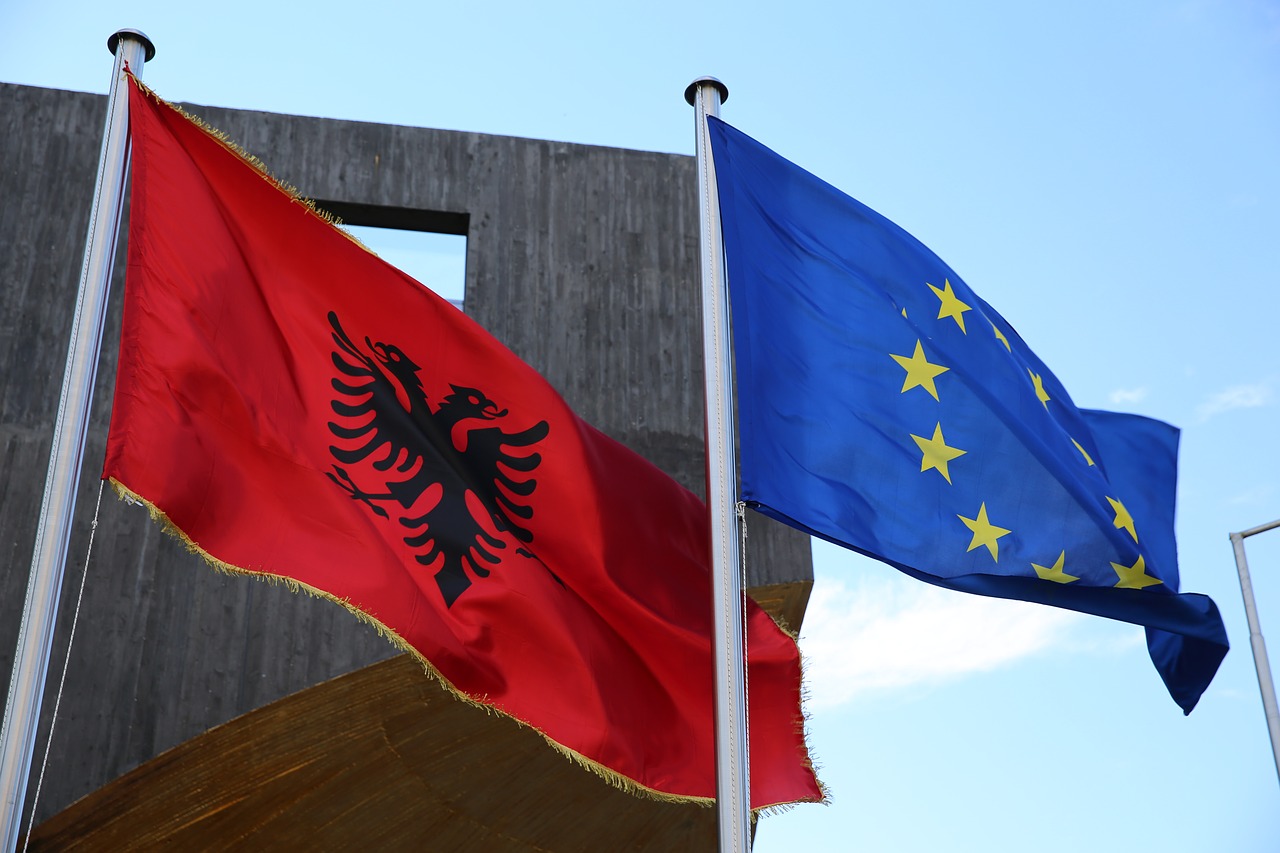Albania sets sights on EU membership by 2030 amid diplomatic challenges

Albania’s Minister for Europe and Foreign Affairs Igli Hasani declared 2024 a milestone year for the country’s EU accession process. Speaking at a year-end review of Albanian diplomacy, Hasani pointed to the opening of two pivotal accession chapters, including the critical Foreign Policy chapter, as the year’s standout achievement. Expressing optimism, he reaffirmed Albania’s ambition to join the European Union by 2030.
Why is this important: The opening of these chapters marks a crucial step in Albania’s integration journey. The government aims to open all accession chapters by 2025 and close them by 2027. However, as Hasani acknowledged, while the technical process is firmly in Albania’s hands, the final decision on membership lies with EU member states, each of which holds veto power. Among these, Greece looms as a potential roadblock due to recent bilateral tensions.
Context: Hasani outlined a two-pronged strategy to navigate the EU accession process. One focuses on technical reforms and the other on political engagement. On the political front, the Foreign Minister highlighted efforts to address potential obstacles, including diplomatic strains with Greece over issues such as maritime boundaries and the rights of Albanian workers in Greece. While the two countries agreed in 2020 to take the maritime dispute to the International Court of Justice in The Hague, little progress has been publicly disclosed. Hasani suggested that discretion is key, stating that negotiations are deliberately kept off the media radar to ensure substantive outcomes.
Relations between Tirana and Athens have been particularly strained following the arrest of Fredi Beleri, a Greek minority politician in Albania, in May 2023. Even though Beleri was caught in flagrante buying votes, Greece’s reaction was furious. It has hinted many times that it could wield its EU veto over the matter, making this a significant hurdle for Albania’s EU aspirations. Hasani emphasized that his ministry is working to anticipate and address such challenges through active diplomacy.
Refuting opposition claims: The Minister also dismissed opposition allegations of improper involvement by Albanian diplomats in organizing diaspora voting for the upcoming elections. Hasani categorically denied the claims, framing them as baseless political attacks.
Looking ahead: Albania’s government is pinning its hopes on continued reform efforts and enhanced international diplomacy to secure its EU future. But with hurdles both technical and political, the road to EU membership by 2030 remains steep.
This year’s achievements underscore Albania’s progress, but as Hasani noted, success ultimately depends not just on fulfilling EU criteria but also on navigating the shifting dynamics of European geopolitics.


